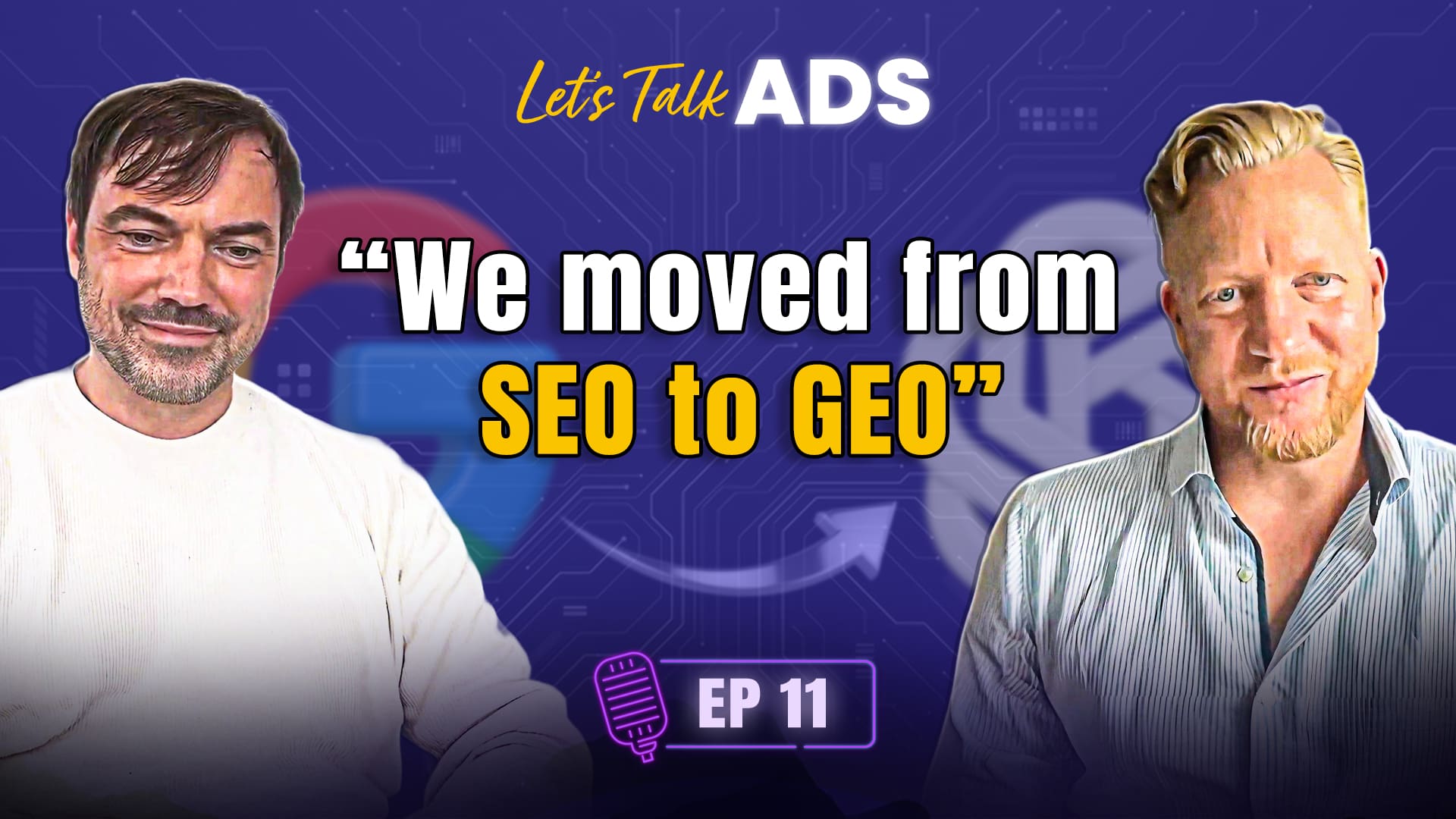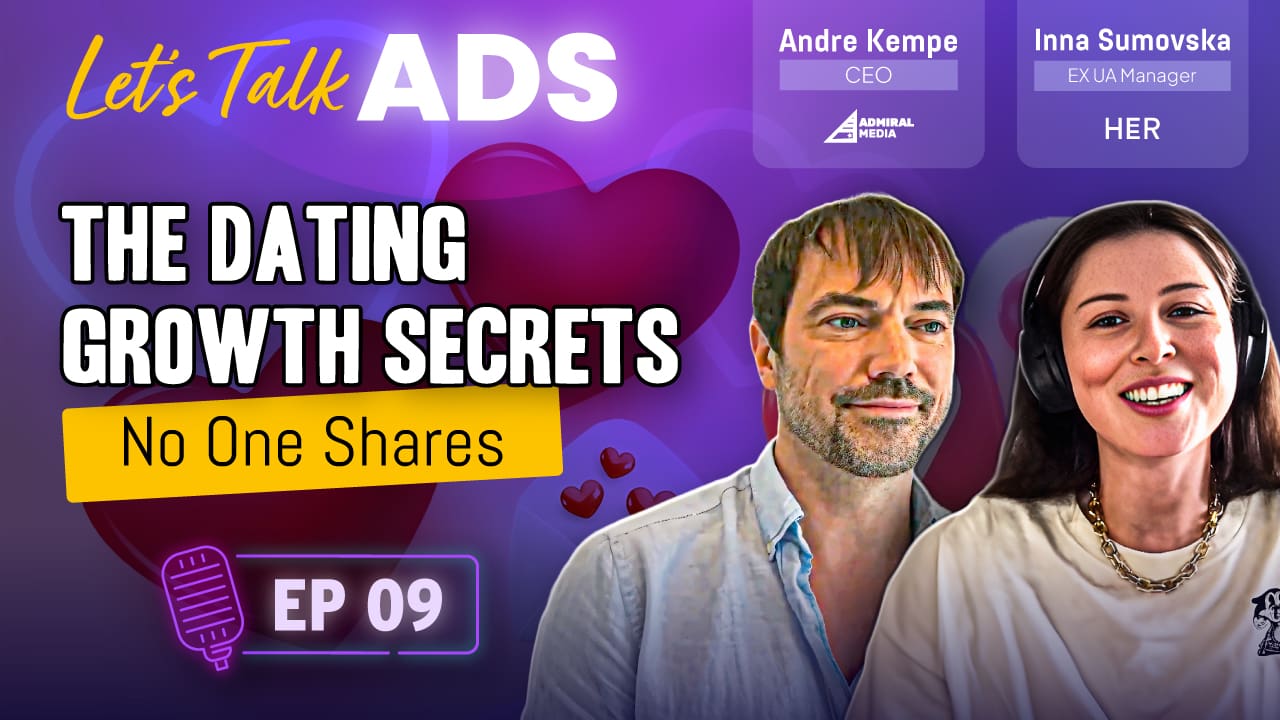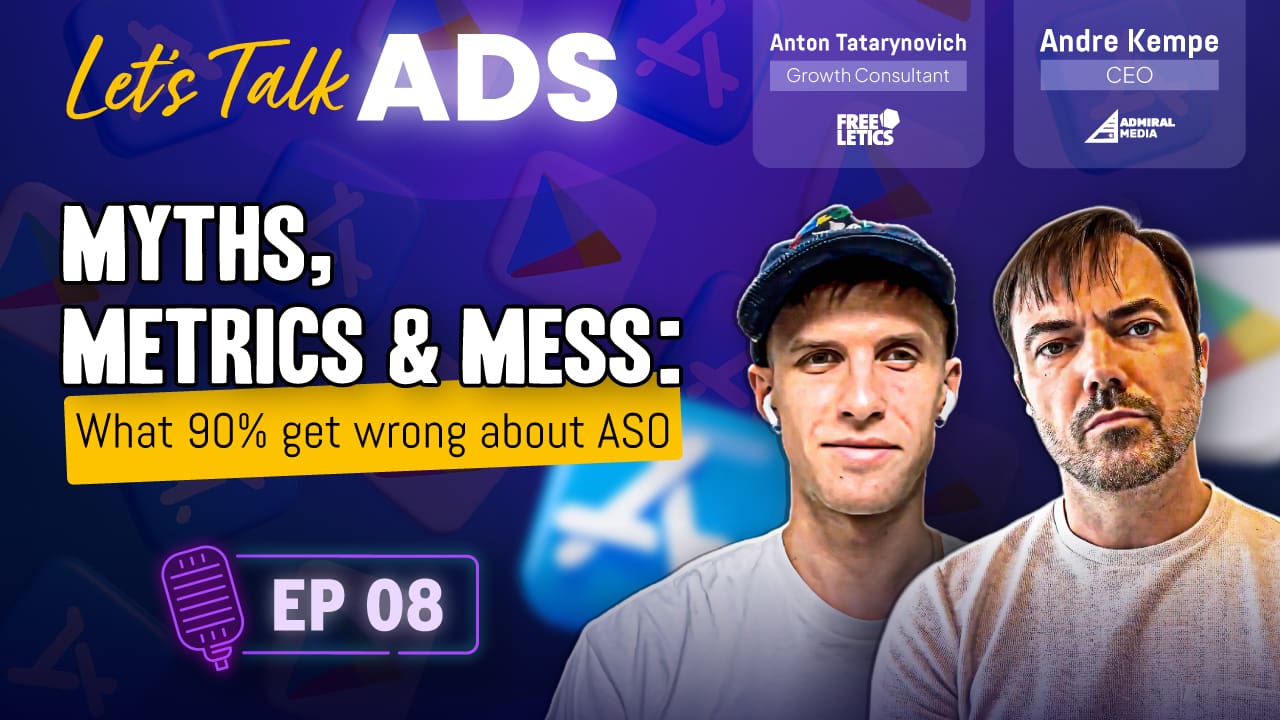When Danil Ovechkin left his growth role at Revolut, a fintech giant known for aggressive acquisition tactics, to join Waking Up, a mindfulness app, many people questioned the move.
Table of Contents
Why shift from scaling financial products with cash-driven referral programs to growing a meditation app built on trust and credibility?
Our CEO, Andre Kempe recently spoke with Danil on our Let’s Talk Ads podcast, and his answers gave us a fresh perspective on why different verticals require very different growth strategies.
This article isn’t about hacks or shortcuts. It’s about the lessons that apply when customer acquisition gets expensive and when trust is more important than transactions.
Fintech vs Mindfulness: Two Very Different Playbooks
At Revolut, Danil’s playbook was simple:
-
Referral programs offering “give $20, get $20”
-
Heavy investment in paid acquisition channels
-
Clear utility-focused messaging
It worked. Revolut achieved rapid adoption and millions of users.
But when Danil joined Waking Up, the same approach backfired.
“Mindfulness isn’t a utility decision. It’s personal.”
Users don’t want to feel “sold” on meditation. They want to feel safe, supported, and understood.
As Danil put it: “You can’t hack mindfulness.”
The harder he pushed with fintech-style tactics, the more it eroded the trust needed to retain users.
Why Data Integrity Comes First
One of the most practical takeaways from our conversation was how Danil started at Waking Up.
Instead of running campaigns immediately, he spent his first three months fixing data infrastructure:
-
Attribution setup
-
UTM structure
-
Event tracking and cohorts
-
LTV modeling
“Growth is about the numbers. That’s the ugly truth. I need to confidently say this dollar contributed to this dollar back.”
At Admiral Media, we see this often. Brands want to scale before they can clearly answer which channels are working and which aren’t. Without clean data, every optimization is guesswork.
It isn’t glamorous work, but it’s the foundation for everything else.
Why “Sharing” Works Better Than “Referrals”
Another insight that stood out: Waking Up doesn’t run a referral program. They run a sharing program.
The language matters.
-
Referral: transactional, feels like a deal
-
Sharing: relational, feels like a gift
When a user shares a meditation session, they’re offering something meaningful. It’s a completely different psychological experience than sending a referral code for $20.
The results back it up: referred users in mindfulness apps tend to have higher retention and higher lifetime value than users acquired through paid ads.
This shift, from incentives to authenticity, made me reflect on how much language and positioning influence user behavior.
Brand and Performance Aren’t Opposites
Danil also mentioned how even small creative choices at Waking Up. Like which image to use sparked an internal debate.
At first, this sounded more like brand marketing than performance. But the more I thought about it, the more I realized how connected they are.
In trust-based verticals, brand and performance are not separate. Every creative decision affects credibility, which in turn affects conversion.
At Admiral Media, we’ve always been performance-first. But this conversation made me see brand alignment as another performance lever—not something fluffy to ignore.
Building Sustainable Growth Engines
The reality is that acquisition costs are rising everywhere. Cheap installs are gone.
Danil’s approach at Waking Up wasn’t to outspend competitors. Instead, he built sustainable growth systems:
-
Education-first content
-
Trust-based sharing programs
-
Strong data foundations
-
Paid campaigns that support – not replace organic growth
It’s slower at the start, but over time, these systems compound. Users acquired through trust and authenticity stay longer, spend more, and bring others with them.
What This Means for Other Apps
Here’s the big takeaway for me: growth strategies must match the psychology of the vertical.
-
Fintech users respond to utility and incentives
-
Mindfulness users need trust and authenticity
-
Dating users respond to emotion and belonging
-
Gaming users respond to fun and FOMO
If you apply the wrong playbook, you’ll waste spend and lose credibility.
If you’re curious to dive deeper, you can listen to the full Let’s Talk Ads conversation with Danil Ovechkin here.



